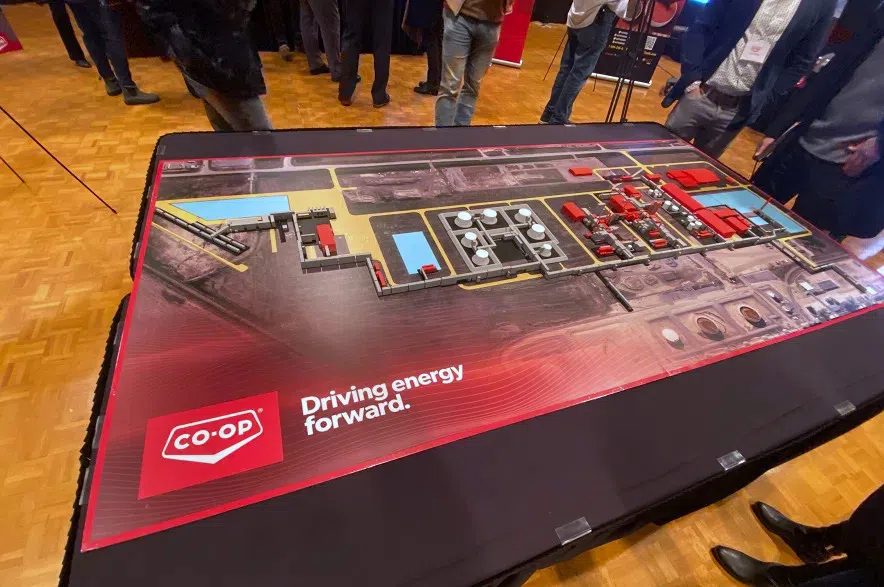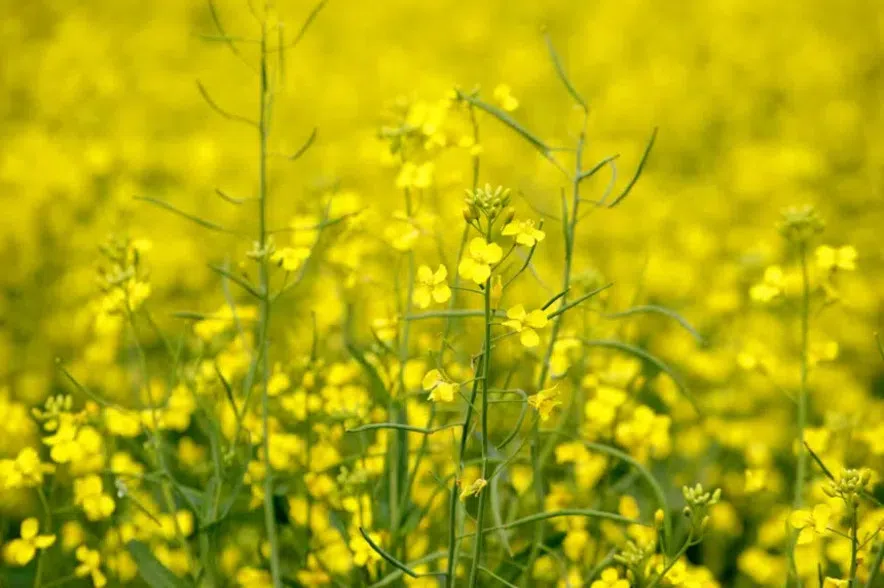In the same week, two major canola crush projects worth billions of dollars in the Regina area were put on hold, leaving producers to question what it means for the industry and the growth they represented in the economy.
On Friday, Federated Co-operatives Ltd. (FCL) announced it was putting a pause on its canola crush and renewable diesel plants for the foreseeable future. The company pointed to regulatory and political uncertainty, rising costs, and potential shifts in low-carbon public policy.
Read more:
- 2024 a year of challenges and triumphs for Saskatchewan farmers
- Skyrocketing farmland prices a struggle for young farmers
On Tuesday, the federal government gave the green light to a merger between Bunge and Viterra, which could mean the end of Viterra’s plans to build the world’s largest integrated canola crush facility north of Regina, announced in 2021.
When asked about the future of the facility, Viterra would only point to the conditions attached to the sale — that Bunge do a feasibility study on adding canola crush capacity in Canada in the two years after the deal is complete.
Bill Prybylski, President of the Agricultural Producers Association, saw the halt to the FCL project as another in a “string of disappointing announcements” for producers.
“We’re surviving without it,” Prybylski said. “But had this (FCL) facility gone ahead again, it would have just created more demand for our canola, which would have translated to higher returns for producers.”
The value of processing crops within the province would have economic benefits across Saskatchewan, he said.
Prybylski said the FCL facility would also have given the livestock industry access to canola meal, a byproduct of crushing.
“There’s just so many benefits that a facility like this would bring … But with those plans for this facility on hold, those benefits aren’t going to be realized here, they will be realized somewhere else.”
Chris Vervaet, Executive Director of the Canadian Oilseed Processors Association, said there are still positives in the industry. He called the pausing of FCL’s plant unfortunate but said three other projects — Cargill’s plant, and expansion of two other plants — are either done or still going ahead.
“The more value-added processing for canola that we can have on the prairies, the better for farmers, for local communities and, frankly, for the entire value chain,” said Vervaet.
He said canola is still one of the most profitable crops for farmers.
“We continue to believe that there’s incentive for farmers to grow canola. The fact that we see more crush capacity coming down the pike should be an added incentive to put canola in the ground,” said Vervaet.
However, for that to continue, Vervaet said there would need to be some predictability and clarity going forward in the biofuels market, which is where much of the demand for canola crush is coming from.
What does the Viterra merger mean?
The condition attached to the Viterra-Bunge merger is the equivalent of the companies kicking the can down the road, according to business analyst Paul Martin.
Martin said that had the two companies announced the potential plant wouldn’t be built if the merger happened, it could have been enough to scuttle the deal in the eyes of Transport Canada. This way, the companies “fudged it” and said they’ll figure it out later, according to Martin.
“(It’s the companies saying) we’ll make a decision a couple of years from now and, if that’s what it takes to make the feds happy to settle this deal, well we’ll agree to do that,” he explained.
Martin said the feasibility study will look at whether it’s feasible for the company, and whether it’s feasible for the marketplace.
“If you’re a canola seller you’d be saying ‘I want the feasibility study to say that yes, we need more capacity.’ And if you’re already feeling as a company that the market is saturated — and we’ve certainly had a lot of capacity expansion here — they don’t want to commit themselves to going ahead with Viterra’s plan,” said Martin.
One of the factors that could go into the equation is the Trump tariff threat, according to Martin. He said canola and canola oil are often exported to the U.S. and its biofuel markets, and tariffs could change the economics of it.

FCL and AGT Foods held an open house in 2023 showing off what the complex would look like (CJME file photo)
Provincial government supported canola investment
The Viterra and FCL plants were part of a flurry of canola crush announcements made in Saskatchewan in 2021 and 2022.
Viterra announced its facility in 2021 — a $1 billion investment in the facility which was to have a 2.5 million tonne capacity.
The facility was a big enough economic opportunity that the City of Regina committed $18.6 million in incentives to the project for things like developing water infrastructure on the land. The city also sold the land to Viterra for $2 million less than the assessed value.
No shovels have been put in the ground for the facility, and the city said this week it hadn’t provided any of those incentives or work yet.
Cargill announced its $350 million facility the same week.
This plant is in the final stages of construction and is expected to open this year, according to Cargill’s website.
Ceres Global announced its own plan for a canola crush facility in 2021, set to be built near the U.S. border. It was to be a $350 million facility with a 1.1 million metric tonne annual capacity.
The project was cancelled by Ceres a little over a year later.
FCL announced its canola crush plant in 2022, which would be built at an integrated agriculture complex with a biodiesel plant. The whole complex was expected to be a $2 billion investment, creating 150 permanent jobs.
The facilities were expected to be up and running by 2027. No work had begun when the announcement was made Friday to put them on hold..
A number of expansion plans for plants were announced around that time as well, including Richardson Pioneer announcing it would double the capacity of its plant near Yorkton.
The provincial government was involved or quoted in a number of these announcements, welcoming the investment.
The Saskatchewan Growth Plan includes a goal of crushing 75 per cent of the canola Saskatchewan produces by 2030, adding $2 billion in value-added revenue to the province. It was estimated at the time that all these projects would have gotten the province well past that goal.
In response to the two announcements last week of plants being put on hold, the provincial government said in a statement that it was disappointed to hear of the FCL decision but respected it and it optimistic it’ll move forward in the future.
The statement also said the government is going over the terms and conditions attached to the Transport Canada ruling on the Bunge-Viterra merger to help prevent negative impacts.
Read more:
- 2024 a year of challenges and triumphs for Saskatchewan farmers
- Skyrocketing farmland prices a struggle for young farmers
— with files from 980 CJME’s Gillian Massie











